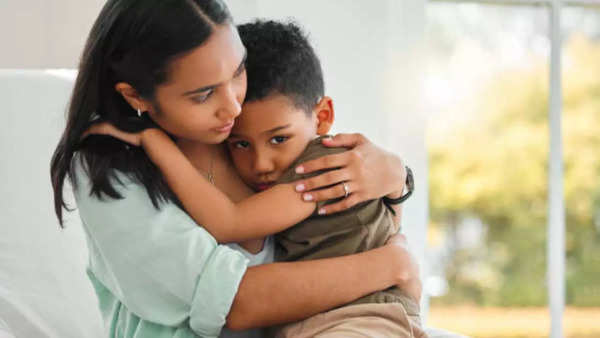Behavioural change
Drastic changes in your child’s behavior, such as increased irritability, mood swings, withdrawal, or excessive isolation, can be red flags.If your once-outgoing child becomes suddenly introverted, or if their overall demeanor shifts, it may signal an underlying issue they’re struggling to express. If your child is avoiding social interactions, be it with friends or family, it can indicate emotional distress. They might be afraid to share their feelings, thinking they’ll be judged or misunderstood.
A noticeable drop in grades or performance at school can be an indication that your child is struggling with their studies. Fear of disappointing their parents or feeling overwhelmed by academic pressure may prevent them from seeking help. Children often find joy and expression in their hobbies and interests. If your child suddenly loses interest in things they were once passionate about, it might signal emotional struggles.
Stress, anxiety, and emotional turmoil can manifest physically. Look for symptoms like headaches, stomachaches, sleep disturbances, or frequent illness. These could be signs that your child is grappling with internal issues they are unable to articulate. A sudden change in eating habits, whether a loss of appetite or excessive eating, can be linked to emotional distress. This may be a child’s way of coping with their feelings when they don’t know how to communicate them.
Signs of regression
Younger children might exhibit signs of regression, reverting to behaviors typical of a younger age, such as bedwetting or thumb-sucking. This can be a response to anxiety or fear. Unprovoked anger or aggression can sometimes be a way for children to express their internal turmoil. They may not have the vocabulary to explain their feelings and instead exhibit frustration through outbursts.
A child who struggles with self-esteem may not ask for help in fear of appearing vulnerable. They might be excessively self-critical or avoid taking on challenges. Some children are so afraid of disappointing their parents or caregivers that they avoid seeking help or sharing their difficulties. They may feel that they have to uphold high expectations.
If your child ever mentions feeling hopeless, worthless, or talks about self-harm, these are clear signs that they need help urgently. Don’t hesitate to seek professional assistance if you encounter such statements.
In some cases, adolescents may turn to substance abuse to cope with emotional distress. Changes in friends, interests, or a sudden shift in social circles can indicate such behavior.

It’s important to create an environment where your child feels safe and comfortable discussing their concerns. Encourage open communication, assure them that you are there to support them, and actively listen when they choose to share their feelings. Seek professional help if you believe your child’s emotional or behavioral changes are significant and persistent. A pediatrician, school counselor, therapist, or child psychologist can provide valuable insights and guidance.
Dads caring for their kids: It’s parenting, not babysitting

